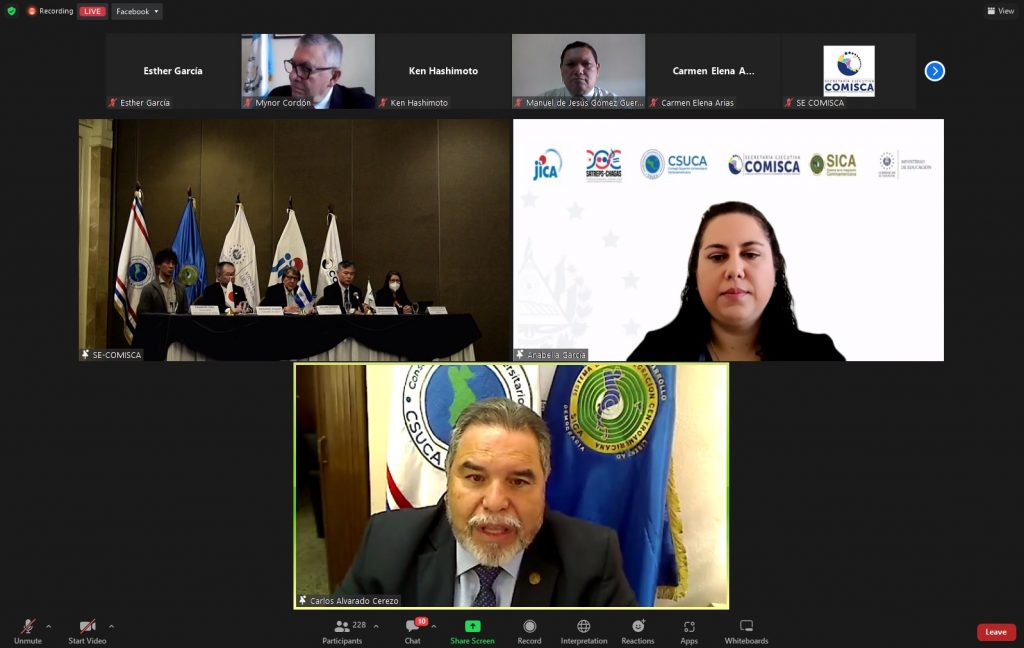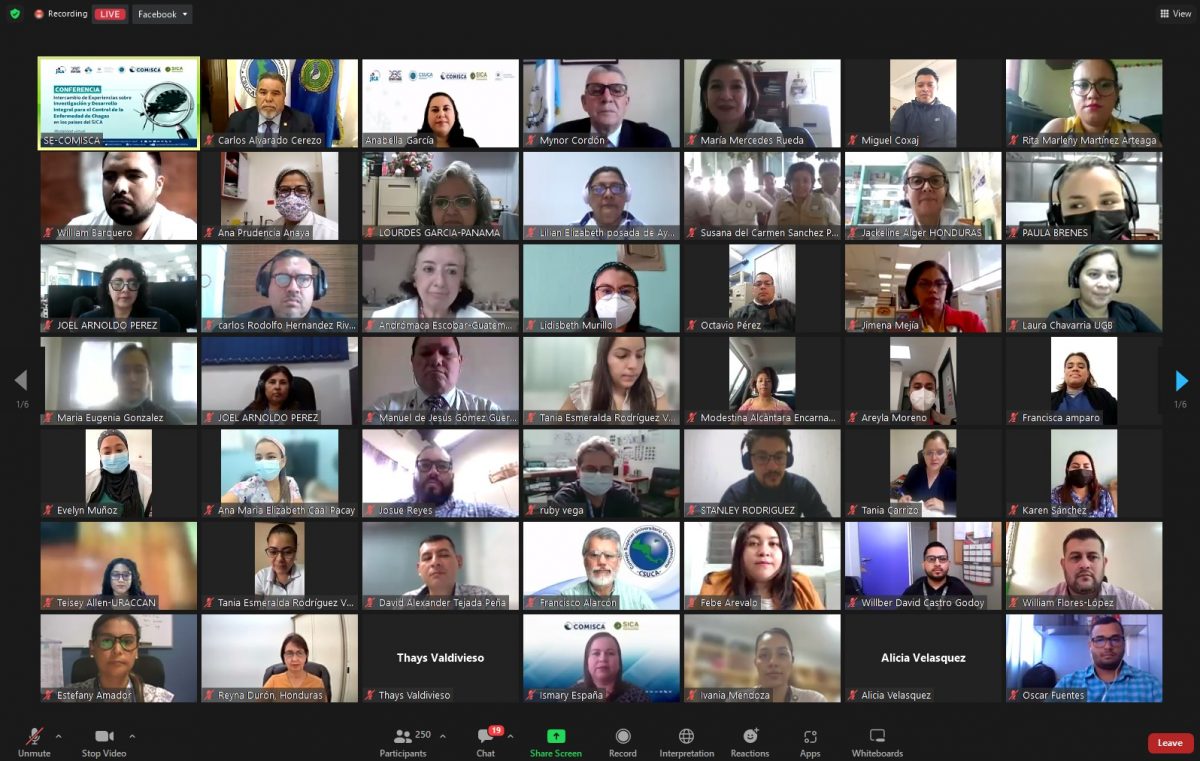Centroamérica 30 de enero de 2023
Con el propósito de presentar el desarrollo histórico del control de vectores que transmiten la enfermedad de Chagas en los países de Centroamérica, el día de hoy se realizó el Intercambio de Experiencias sobre Investigación y Desarrollo Integral para el Control de la Enfermedad de Chagas en los países de la región SICA, en el marco de la conmemoración del Día Mundial de las Enfermedades Tropicales Desatendidas.
La Agencia de Cooperación Internacional del Japón -JICA- ha promovido el trabajo de investigación científica colaborativa a través del proyecto de “Investigación y Desarrollo Integral para el Control de la Enfermedad de Chagas”. Y en esta oportunidad unen los esfuerzos del Proyecto SATREPS-CHAGAS, el Ministerio de Educación Ciencia y Tecnología de El Salvador -MINEDUCYT-, la Secretaría Ejecutiva del Consejo de Ministros de Salud de Centroamérica -SE COMISCA- y la Secretaría General del Consejo Superior Universitaria Centroamericana -SG CSUCA-, para la generación de dicho evento.
Para dar inicio al intercambio de experiencias se contó con la participación de Alejandra Acuña Navarro, Secretaria Ejecutiva del COMISCA; Carlos Alvarado Cerezo, Secretary General of CSUCA; Yasutoshi Kido, Profesor del Departamento de Virología y Parasitología de la Escuela Superior de Medicina de la Universidad Metroplitana de Osaka e Investigador the SATREPS-CHAGAS Project; Masaru Kozono, Chief Representative of JICA El Salvador; Ariyoshi Katsuhide, Embajador de Japón en El Salvador y Ricardo Cardona Alvarenga, Vice Minister of MINEDUCYT, Director of the SATREPS-CHAGAS Project.
“Para que nuestros países salgan adelante debemos trabajar de una manera colaborativa y solidaria, unidos todos los sectores para enfrentar el contexto de nuestras sociedades”, mencionó Carlos Alvarado, Secretario General de CSUCA.
Dentro del proceso del intercambio de experiencias se presentó la conferencia “Enfermedades Tropicales Desatendidas” por Yasutoshi Kido, “Desarrollo histórico del control de vectores que transmiten la enfermedad de Chagas en El Salvador” por José Eduardo Romero, “Resultados del proyecto SATREPS-CHAGAS” por Yuko Nitahara, Tatiana Ascencio, Marvin Núñez y Carmen Arias, “Perspectiva del MINEDUCYT respecto a la investigación científica con aplicación a la enfermedad de Chagas en Centroamérica” por William Ernesto Mejía y el panel “Intercambio de experiencias con otros países de la región sobre la investigación de enfermedad de Chagas” con la participación de Carlota Monroy, Marvin Stanley Rodríguez Aquino, María Mercedes Rueda, Concepción Zúñiga Valeriano y Manuel Gómez.
Cabe destacar que la enfermedad de Chagas, es una enfermedad parasitaria endémica de América Latina. Más del 80% de las infecciones se transmiten al ser humano a través de los insectos chupadores de sangre conocidos como chinches, los cuales viven en casas con techos de paja y grietas en las paredes de barro. La mayoría de las personas que contraen la enfermedad de Chagas suelen ser personas de escasos recursos económicos y pertenecientes al segmento más vulnerable de la población.
En Centroamérica, más de la mitad de la población está en riesgo de contraerla. Aunque la enfermedad de Chagas puede tratarse durante la fase aguda, la medicación tiene fuertes efectos secundarios.


